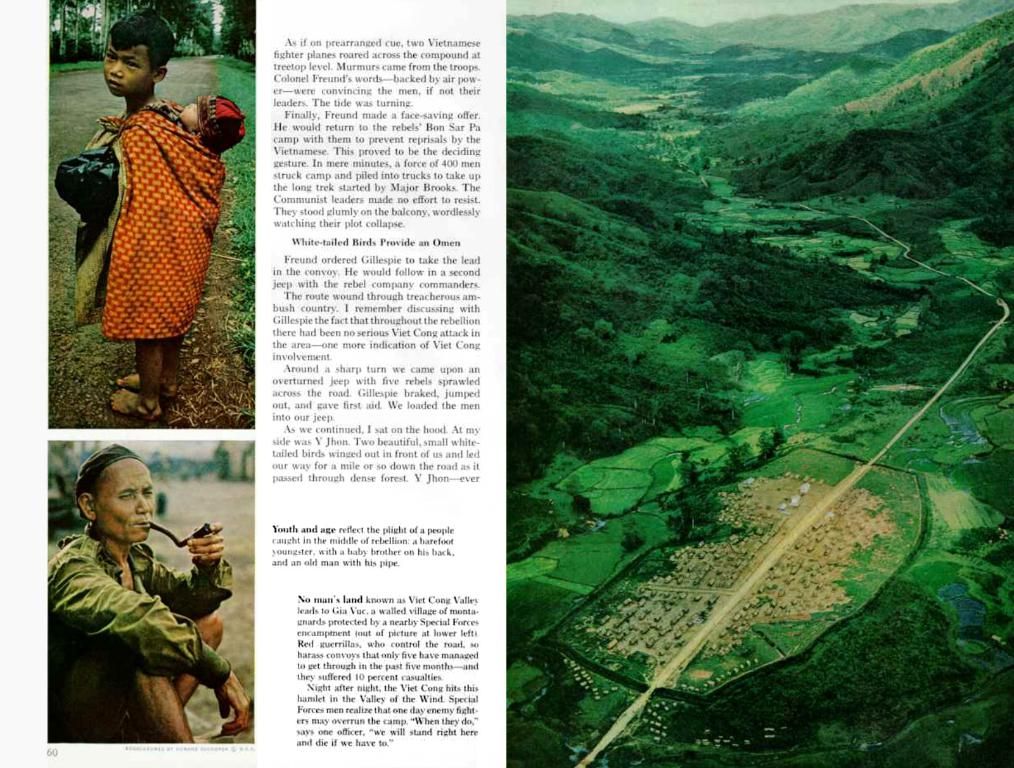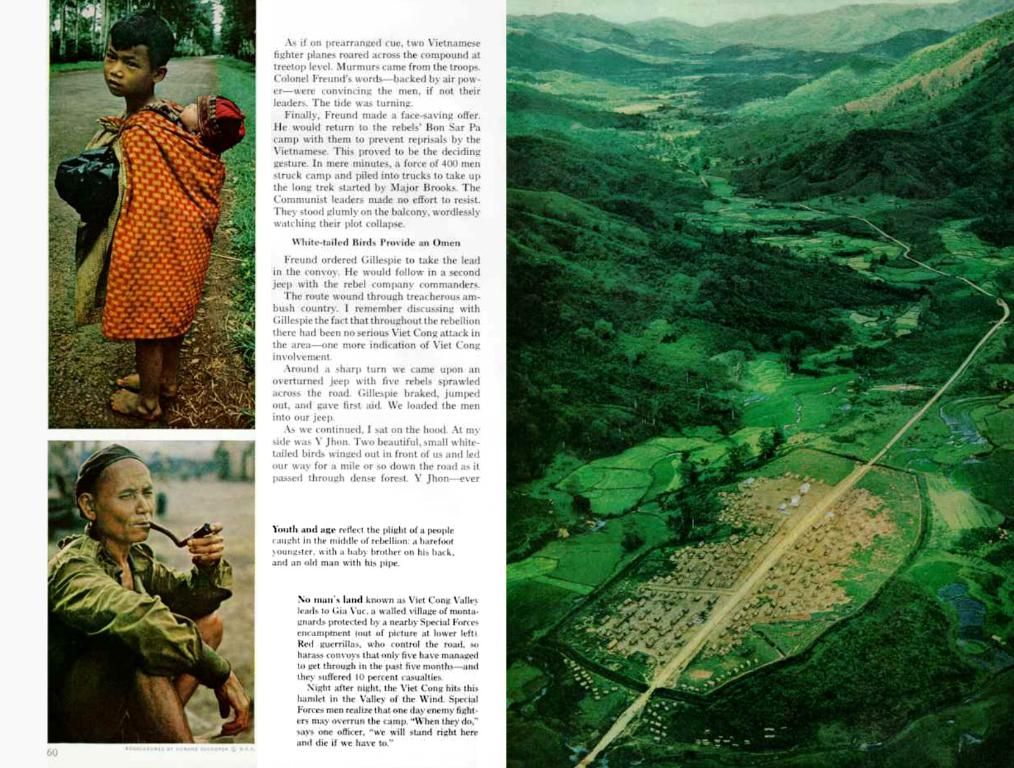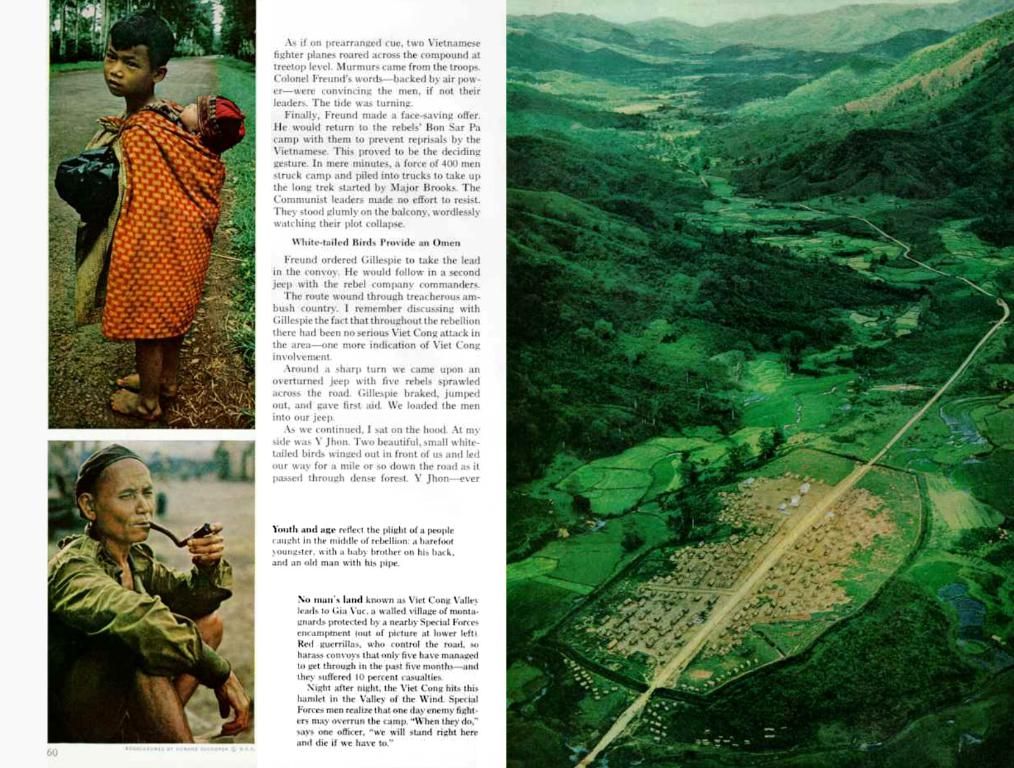EU-Mercosur Trade Agreement: A Double-Edged Sword for Sugar and Ethanol Markets in Europe
Unfair pressures on sugar manufacturers across Europe
The EU-Mercosur trade agreement looms large, potentially reshaping Europe's sugar and ethanol industries while raising environmental concerns in agricultural sectors. Here's a breakdown of the key implications:
Market Stirrings
- Tariff Elimination: The agreement aims to scrap 91% of tariffs on agricultural goods, potentially flooding European markets with cheaper sugar and ethanol imports from Mercosur powerhouses, notably Brazil, a major player in global ethanol production [2][5].
- Intensified Competition: Budget-friendly South American sugar and ethanol could put a strain on European prices, particularly ethanol, where Mercosur countries hold an edge in sugarcane production [1][5]. As European ethanol prices might plummet if imports escalate, domestic producers may counter with sustainability-linked tariffs, though such mechanisms are not explicitly addressd in current negotiations [5].
- Price Volatility: Localized policies and climate disruptions (e.g., El Niño) can cause sugar price volatility in Colombia and Ecuador, a phenomenon European markets might experience with increased Mercosur imports [1][4].
Environmental Concerns
- Deforestation Perils: Expanding agricultural demand for Mercosur exports (e.g., Brazilian sugarcane) risks hastening deforestation in sensitive regions such as the Amazon, a controversial point during the agreement's ratification process [2].
- Sustainability Discrepancies: Mercosur agricultural environmental standards, particularly in pesticide use and land conversion, typically fall short of EU norms. Critics argue that inadequate safeguards in the draft agreement could undermine EU green policies [2][5].
- Carbon Trade-Off: Transporting ethanol from South America to Europe may offset emissions savings from biofuel blending mandates, although lifecycle analyses remain debated [5].
Industry Landscape
- Resistance: Irish agricultural groups and EU legislators have expressed opposition due to threats to domestic farmers from increased competition and lax environmental enforcement [3][5].
- Prospects: Advocates emphasize potential benefits for EU exports (e.g., chemicals, machinery) and consumers from cheaper prices, although such advantages may not be evenly distributed [2][5].
The final agreement's conditions concerning agricultural safeguards and dispute mechanisms will determine whether it propels unsustainable practices or fosters conditions that promote eco-friendly practices via conditional market access. Current provisions seem inadequate to fully address these dual challenges [2][5].
- The EU-Mercosur trade agreement could lead to the elimination of tariffs on 91% of agricultural goods, which may result in an influx of cheaper sugar and ethanol imports from Mercosur countries, particularly Brazil, impacting the European sugar and ethanol industries.
- As competition intensifies, budget-friendly South American sugar and ethanol could place a strain on European prices, specifically ethanol prices, as Mercosur countries hold an edge in sugarcane production. This could potentially lead to the use of sustainability-linked tariffs by domestic producers to counter the pricing effect, although such mechanisms are not explicitly addressed in current negotiations.
- Market volatility can occur due to localized policies and climate disruptions in countries like Colombia and Ecuador, potentially affecting European sugar prices with increased Mercosur imports.
- The final agreement's conditions regarding agricultural safeguards and dispute mechanisms will be crucial in determining whether the agreement promotes unsustainable practices or encourages eco-friendly practices via conditional market access. Current provisions seem inadequate to fully address these dual challenges.





